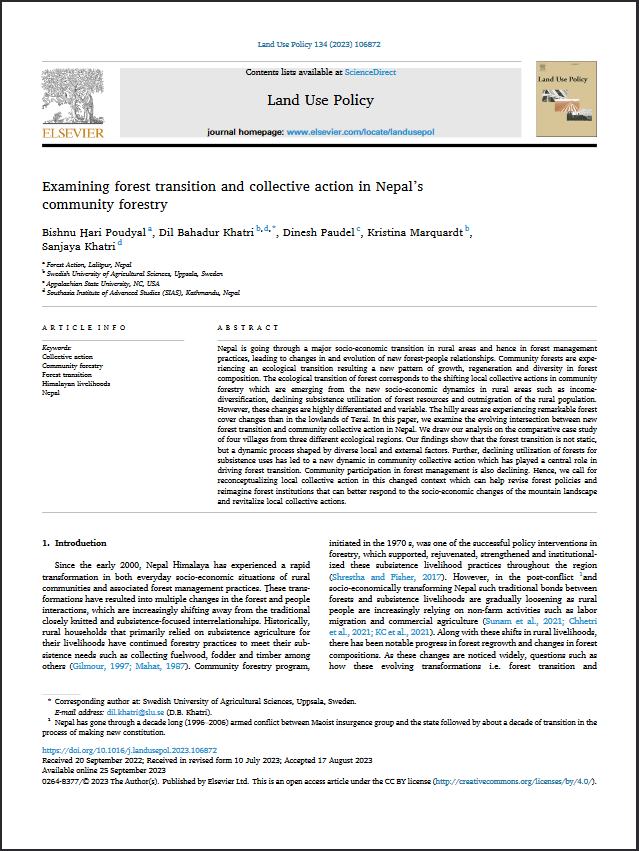Published online: 25 October 2019
Authors: Eszter Krasznai Kovács, Hemanta Ojha, Kaustuv R. Neupane, Thomas Niven, Chetan Agarwal, Devendra Chauhan, Ngamindra Dahal, Kamal Devkota, Vijay Guleria, Tikeshwari Joshi, Natasha K. Michael, Anvita Pandey, Nuvodita Singh, Vishal Singh, Rajesh Thadani, Bhaskar Vira
Available at: https://doi.org/10.1016/j.geoforum.2019.10.008
Abstract
This paper traces the logic, goals and changed socio-ecological relations and water norms introduced by donor- and state- led drinking water supply schemes to small urbanising settlements across the lower Himalayas of India and Nepal. While urban development and water planning tend to boundarise needs and interventions to city limits and city- dwellers, we adopt a hydro-social lens to trace the impacts and consequences of infrastructure and water as both travel through the landscape. Investments into water supply introduce new scales, spatialities and visions for urban development that actively peripheralise rural needs and interests, and introduce new dependencies for infrastructural maintenance that stretch the institutional and governance capacity of towns, such as around energy, finance, and expertise. We find that water supply projects give rise to new power differentials and development trajectories between more- powerful, typically urban and down-stream communities, and rural, up- stream source regions. Projects bring new potentials but also disrupt old relations and customs around water, resulting in the emergence of conflicts within and beyond towns as water availability and access opportunities change. Application of a hydro-social and urban metabolism focus to Himalayan waterscapes makes visible the environmental and societal trade-offs associated with resource provisioning to urban development centres.







